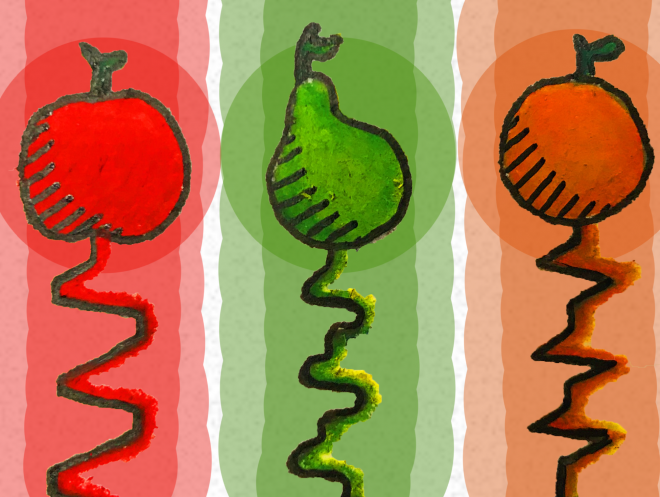For many students, college is the first time they are on their own. Students must juggle learning how to thrive in a new environment, demanding coursework, a job and extracurricular activities. On top of this, students must learn to take care of themselves. As such, UT should educate all its students about basic nutrition and how to lead a healthy lifestyle.
The last time most students — myself included — learned about proper nutrition was using the food pyramid in elementary school. As newly independent adults, it is imperative that students develop the practical skills needed to cook healthy meals and nourish themselves.
This sentiment is echoed by Alejandra De Angulo, an assistant professor of instruction in UT’s Department of Nutritional Sciences. “Everyone should be more educated on nutrition, and college students are at a vulnerable age where this type of information is very important. The amount of misinformation in regards to nutrition is alarming.”
Since college students are young and healthy, many don’t realize that the food choices they make every day are extremely important and directly affect their health when they are older.
“A poor diet is associated with major health risks that can cause illness and even death,” De Angulo said. “These include heart disease, hypertension, Type 2 diabetes, osteoporosis and certain types of cancer.”
De Angulo said the biggest nutrition misconceptions she sees on campus are that students often fall prey to fad diets promoted on social media.
“The pressure to fit in plus all the conflicting claims and testimonials (on) social media and hype by so-called ‘experts’ causes many UT students to fall for these fads,” De Angulo said. “Many people believe that what society perceives as an attractive body is necessarily a healthy body, and that is not always true.”
In addition to correcting a lack of awareness about proper nutrition, students also need to be taught how to apply nutrition principles to their daily life. Kulsoum Rizvi, a biochemistry and nutrition junior and a member of the Student Health Advisory Committee, agrees.
“People who’ve never cooked before don’t really know how to get started at first,” Rizvi said.
Students then struggle with balancing their other commitments while also devoting time to learning how to develop good habits.
Nutrition habits developed now can have far-reaching implications for students’ overall health later in life. Because of this, it is important to increase access to healthy foods and teach college students how to eat healthy on a budget.
An easy way to disseminate information to the student population at UT would be through First-Year Interest Groups, or FIGs. Most students at UT are placed into a FIG with about 18 to 25 other students. The freshmen are able to make friends with students in their classes, and they are also able to receive advice from their FIG mentor, an older student at UT.
Training FIG mentors on how to teach basic nutrition and its practical application would ensure that a wide audience of students receive this crucial information. The FIG mentors could also share their personal experiences with cooking for themselves and learning how to navigate grocery shopping, meal prepping and other topics.
Moreover, it would be very feasible to incorporate presentations regarding nutrition into the weekly seminars. Rizvi, a FIG mentor, said that since she was a nutrition major she talked to her students about developing these skills even though it was not required for FIG mentors to address nutrition specifically.
Another way UT could educate its students about nutrition would be to create a blog or website run by registered dietitians from University Health Services. This way, all the information would be in one place online, and students could access it at any time from the comfort of their own homes.
UT should provide their students with the practical skills to live on their own. Basic nutrition and its application in the real world is something that every adult should know. College should be a place where students both expand their intellectual horizons and learn how to live in the real world.
Shah is a neuroscience freshman from Austin.





















